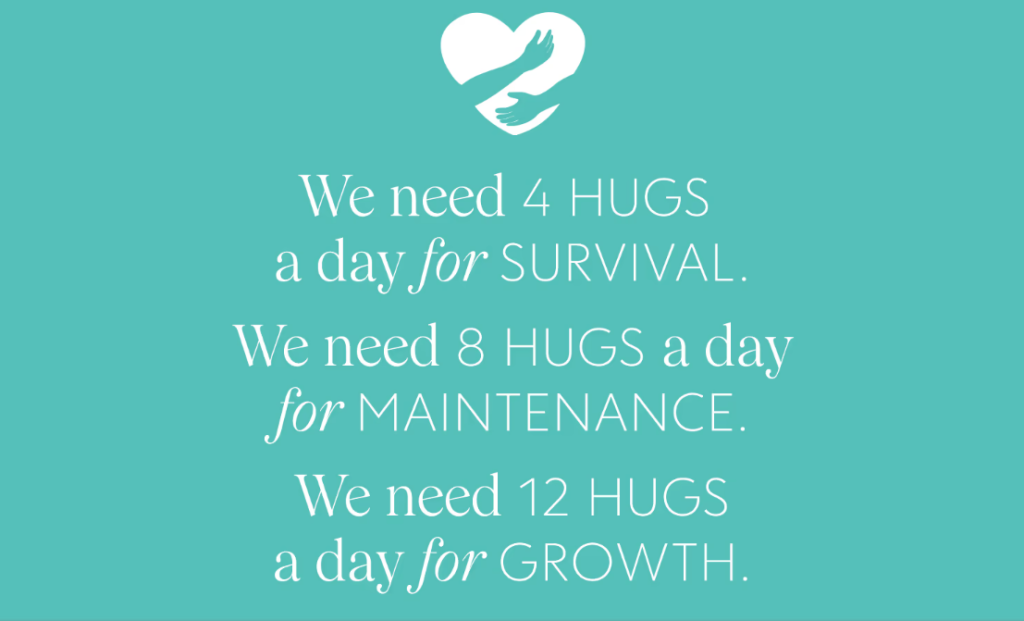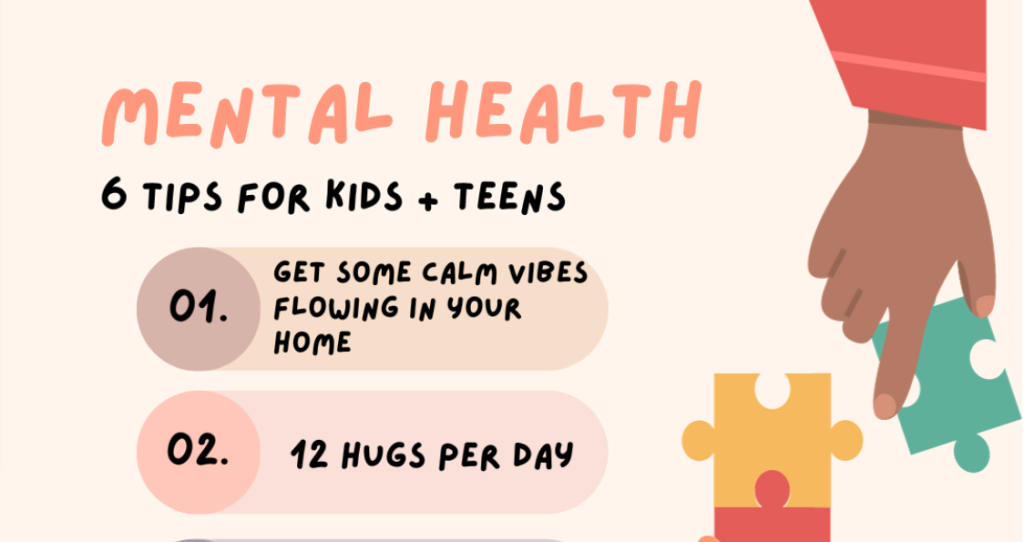Actively fostering a healthy mindset in kids plays a big role in how they feel on a daily basis.
When I originally wrote this article, which was a few years ago, we were in the middle of an epidemic and statistics about kids and their mental health weren’t getting the media coverage they deserved. Many children and teens were still suffering and world events were not helping the cause. Even if your child or teen is not currently suffering from mental health issues, these strategies I share can help support mental health and prevent mental health problems.

5 ways to support your child’s mental health.
- 1. Fill your home with calmness.
It’s no secret that meditation is effective in reducing stress and anxiety, as thousands of studies around the world have proven time and time again. Instead of waiting until your kids seem “off,” try practicing a few times a week.
Try meditation. As you know, I meditate every day and it’s my way of controlling my anxiety. I use the Calm app for myself and Vienna! They have a great “Calm Kids” section with only 3-5 minutes of meditation time. She loves the Thomas the Train one!
Try Yoga. Cosmic Kids Yoga on Youtube is another great option for kids ages 3-12 with fun and story themed yoga classes. We take classes 4-5 times a week! They work especially well when Vienna is having a tantrum or is “bored”. Jamie, the woman who teaches this class is fantastic!
- 2. Children need to know that they are loved and that they are safe!
I know I’m stating the obvious here, but if there’s one thing I’ve learned from reading parenting books and subscribing to Dr. Laura Markham’s newsletter, it’s that kids need to feel safe in order to thrive. How do you provide that environment? It’s easy, it’s free, and you can do it right now. Give them extra hugs and reassurance to let them know they are safe, especially if your child has an anxious personality. As the saying goes ……

- 3. Support gut health with fermented foods
There is a lot of emerging research on the link between gut health and mental health. We now know that gut bacteria play a crucial role in our mental health and that supporting your child’s microbiome is key to many elements of their health. Serotonin, a key neurotransmitter for mental health and happiness, is produced in the gut primarily with the help of gut bacteria.
Give your child fermented foods at least once a day. Examples: sauerkraut, kimchi, kombucha (check the sugar content first), miso, tempeh, yogurt, kefir and apple cider vinegar. My daughter likes to put half a teaspoon of apple cider vinegar in her water. The sooner you introduce these foods the better, but it’s never too late.
- 4. Cultivate unity
You may be thinking “no Sherlock bullshit,” but togetherness doesn’t mean all of you watching TV at the same time or sitting around a table with your noses in your laptops or staring at your computers.
The reunion I’m talking about is connecting with each other and doing something together that you all enjoy. I have lots of ideas for fostering togetherness, such as.
Doing a puzzle together as a family (which is our personal favorite) is incredibly meditative for everyone!
Choose a recipe from your favorite cookbook (hint, hint) and make it with your family. Studies have shown that children in families who eat together are less likely to suffer from depression and have higher self-esteem and self-confidence. One benefit is that children who eat with their parents eat more fruits and vegetables.
Take a nature walk as a family, a McJordan family favorite!
Turn on the music and have a dance party!


- 5. Check yourself!
Are you a total bag of stress and anxiety?
Kids learn everything in the house and they are a mirror reflection of you.
If you don’t care about your own mental health and well-being, how can you expect your kids to control their emotions when they feel stressed or anxious? What are your daily habits to foster a happy and calm atmosphere in your home? It’s never too late to start!
There is no such thing as perfect parenting. So please don’t beat yourself up if you’ve been struggling.
I hope this post has given you some ideas on how to support your child’s mental health if they are struggling.



